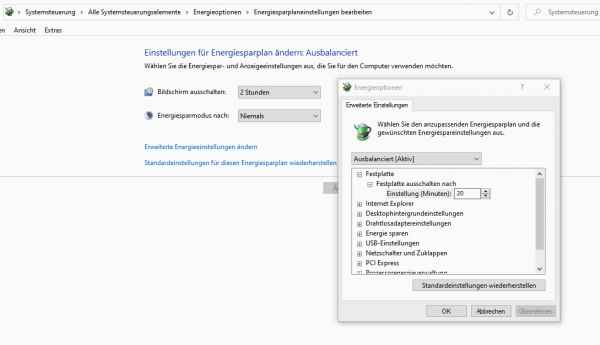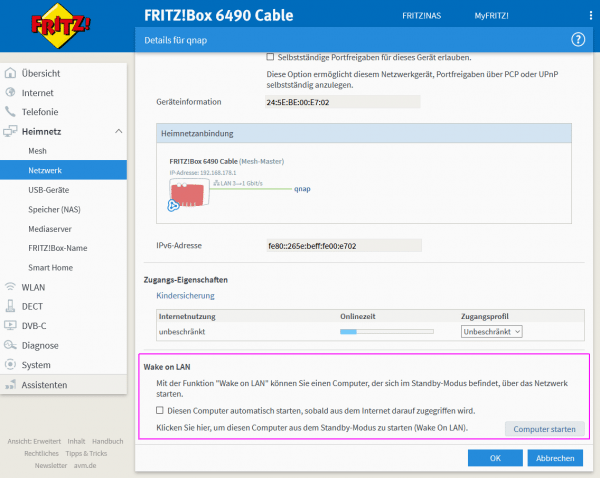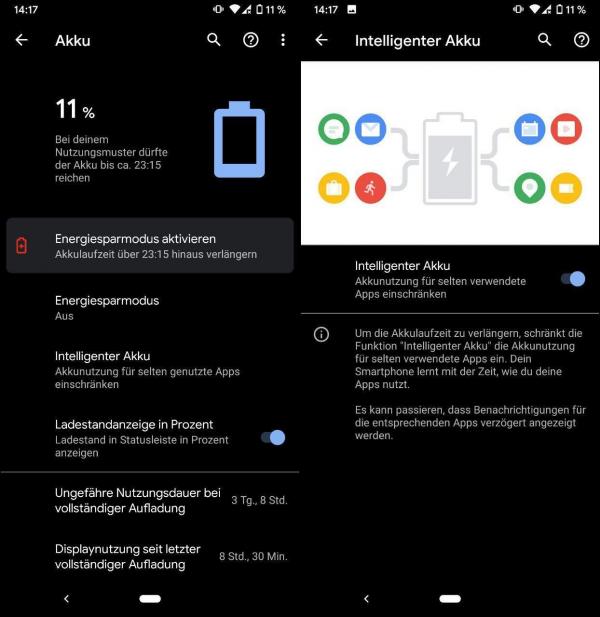Saving electricity is very much in vogue, be it primarily for the climate or more traditionally for the wallet. In the following tipps + tricks article you will find suggestions on how you can reduce your electricity consumption in everyday life.
Is it worth it?
Basically, you first have to ask yourself a question: Do you want to save electricity because of the climate or the money? And how long-term should the whole thing be thought of? Often you will find tips like: "Use a more energy efficient refrigerator". And that's not easy to judge. From an air conditioning point of view, a newly purchased refrigerator will only be of any benefit if the consumption saved has added up to the footprint of the production of this new device - more a question of a decade than a few months. Old devices may consume more, but are already there.
From a financial point of view, the purchase of a new refrigerator should also be assessed very carefully: with a 20-year-old refrigerator, the savings could be large enough that the purchase would pay for itself after four or five years - however, an exact calculation is hardly possible because the use of a refrigerator plays an enormous role. The more common scenario is likely to be refrigerators around the age of ten. With heavy use, for example, co2 goes online from "up to 70 euros" a year, which you can save - a value with many imponderables. If you then take a look at the ten best-selling refrigerators on Amazon, for example, Germans like to spend an average of over 1,000 euros on the cool little helper. In other words, even with a rather inexpensive savings potential, it would quickly take 15 years for the new refrigerator to pay for itself. And in 15 years you can probably reopen the same bill ....
So you have to think economically: When will my savings be profitable? The climate is generally happy about devices that are used for longer; when it comes to your wallet, it is primarily a question of your personal planning. However, you have a third "cost factor" under control yourself: workload. You can also save emissions and money by doing without and changing your habits.
Save electricity on the PC
Saving power is relatively simple on Windows computers: Windows uses so-called power saving plans, which you can find under " Control Panel \ All Control Panel Items \ Power Options \ Edit Power Plan Settings ". Here, click the " Change advanced power settings " link to set all sorts of options. The settings " Turn off hard disk / hard disk after " and " Turn off screen / screen after " offer the greatest potential here . You can configure the complete shutdown of the system under " Save energy / deactivation" If in doubt, you should choose a longer period of time. On the one hand, it is annoying if you have to wake the computer out of deep sleep several times a day, and on the other hand, starting it naturally consumes additional energy..
 Windows offers many options for controlling energy consumption.
Windows offers many options for controlling energy consumption. By the way: laptop manufacturers often give the devices their own energy managers - look for them for your model!
A computer is rarely alone at home, however, and peripherals and network devices also crave power. Printers, scanners, network loudspeakers and similar larger devices in the network usually have their own energy-saving settings and usually consume little enough to be able to do without a complete switch-off - standby is sufficient. However, if possible, you can try to connect all such devices to a smart (WiFi) socket so that you can turn them off with a single click if necessary.
Devices such as NAS, Raspberry Pis, multimedia players and other special-purpose devices in the network are more interesting. Here, too, you will find device-specific energy-saving settings - but most of them remain unused, after all, nobody wants to run into the basement or crawl under the table just to switch on a NAS when it is needed outside of the specified usage times. The magic word here is "Wake on LAN". With WoL, a large number of devices can be woken up from standby. You can send the WoL signal, for example, via the surface of your router. Have a look in the Fritzbox GUI under " Home Network / Network " and click on the " Edit " link of a network device.At the very bottom you will find the WoL function here . This is particularly useful with NAS!
 The WoL function on the Fritzbox.
The WoL function on the Fritzbox. Save electricity on Android
Nowhere does modern man experience more directly what saving electricity feels like and how it works: Mobile devices such as smartphones and tablets are constantly connected to the cable and suck up electricity. There are all kinds of technical possibilities how you can reduce the power consumption without having to record any real losses - which you can read in detail under "Save battery with Android - this is how it works".
In the case of smartphones and the like, however, it is above all the waiver that makes itself felt - not turning on the display ten times an hour to check for new messages would be a start. However, you can also display important notifications on the lock screen and do without an elaborate background image, which can easily save one charging process every week. Or how about not using wireless headphones? Better sound quality, no annoying announcements in the ear, never at the wrong moment without juice. But yes, here we are again at the usual electricity-saving tip: Waiver is simply required, but difficult to implement.
 Android offers a variety of energy-saving settings.
Android offers a variety of energy-saving settings. Less electricity everywhere
Back to the refrigerator, one of the biggest consumers of all. Before you start saving or even switch off something, you have to switch your head on and see whether it is just a drop-in-the-bucket tip or pure snake oil straight away. Baking without preheating is such a "tip" - it clearly saves energy. But the loss of quality in many dishes would be extremely high. And slamming the refrigerator door very quickly may save you half a euro a month, but your thinking energy is certainly better off elsewhere. Very eager savers even fill the unused space in the closet with styrofoam blocks, which of course keep the cold better in the closet than cooled air. But at this point saving electricity is becoming a hobby. For refrigerators there are also helpful ones for everyone Online calculators that can help you find out pretty much how much you can save with a new, more energy efficient device. In general, you shouldn't just implement wild tips, but analyze them first: You can get power consumption meters like the PM 231 E from Brennstuhl for less than 10 euros . Simply switch this "measuring socket" between the socket and the consumer, observe for a few days and then decide on appropriate measures.
But of course there is not only the approach of identifying large consumers and limiting consumption in a targeted manner. According to the motto "Small cattle also make crap", you can simply implement everything that does not annoy you and achieve an effect through it. The most important tool here: your imagination! Once you are prepared to save, you will encounter many energy leaks in everyday life. To raise awareness, here is a small list of larger and smaller savers:
- Buy household appliances in the right dimensions - things like ovens or dishwashers are also available in half the standard sizes, which is usually sufficient for households with one or two people.
- Only fill the kettle with the required amount.
- Maintenance! Clean PC fans, defrost the refrigerator, check window seals, etc.
- Use light sensors in TVs and smartphones to lower the screen brightness when there is little ambient light.
- Cooking with residual heat, with lids and in convection ovens on several levels at the same time.
- Use of energy saving programs in computers, dishwashers and washing machines, ovens and so on.
- Switch off typical stand-by devices in bulk using a remote-controlled socket.
- Switch to energy-saving lamps (which have long since ceased to be annoying with cold light!).
- Warm sweater instead of fully turned on heating.
- Use home automation (if already available!) For usage times.
Finally, however, I would like to point out again that energy consumption is the best guide to energy saving: Think! This consumes a lot of energy, which is made available through produced, cooled, heated food, but it helps against said snake oil and also people, clubs and tips that mean it too well. The above-mentioned co2online, for example, which it claims to be a non-profit project, is focused on one topic and therefore sometimes a little over it, to put it casually. An interview from co2online on the subject of saving electricity when it comes to water consumption: "Hot bathing water is usually only around 40 degrees. In this way, electricity consumption can be reduced by around ten percent. [...] Then why not the temperature right away lower it to 40 degrees? " At least co2online has the answer itself: "In order to exclude the risk of legionella, which is harmful to health ... ". In general, monothematic power-saving sites tend to have a kind of positive extremism and are likely to scare off one or the other moderate energy-saver.